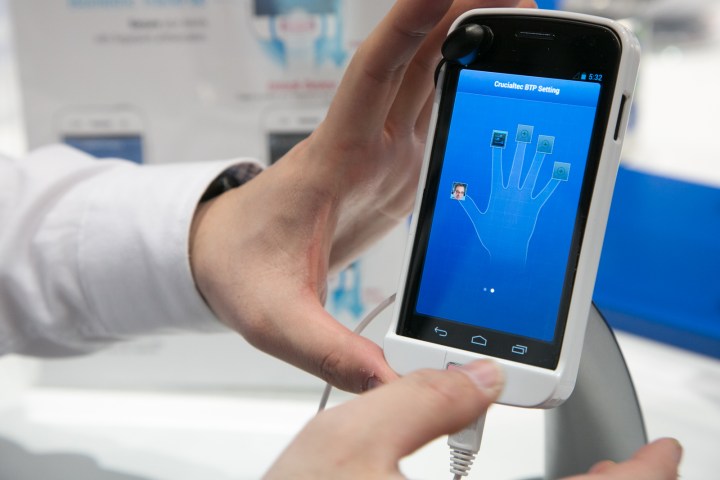
42 percent of survey respondents do not want companies to save and use their personal biometric data, the study finds, and fewer than 1 in 10 participants were confident enough to consider it risk-free. And while some degree of skepticism seems healthy, this seems like a much more pronounced mistrust.
Even as certain biometric methods like fingerprint sensors become increasingly commonplace (with a number of smartphones allowing users to access their contents using a scan of their thumb or forefinger), they’re still far less commonplace than passwords. In fact, just 10 percent of Americans use fingerprint sensors, and as for eye scans, facial, and voice recognition, just 2 percent of survey respondents said that they used each method.
As for why Americans are so suspicious of biometry, the survey shows that 42 percent worry about not being able to access their online accounts in case of a malfunction. Nearly a third of respondents also cited biometric vulnerability as a concern, saying that criminals might be able to access or bypass biometric methods.
“The survey shows that biometric login methods are far from becoming a mass market. Nevertheless, for more security throughout the internet it is very important that alternative authentication methods like biometry are being further researched,” said mail.com CEO Jan Oetjen. “In order to meet the concerns of users, providers have to fulfill high data protection requirements concerning the storage and use of biometrical data.”
Editors' Recommendations
- How to change your router’s Wi-Fi password
- The 1Password Android app just got a huge upgrade
- Hackers targeted 1Password after Okta breach, but your logins are safe
- Google is killing your passwords, and security experts are (mostly) happy
- Disney+ to begin crack down on password sharing


